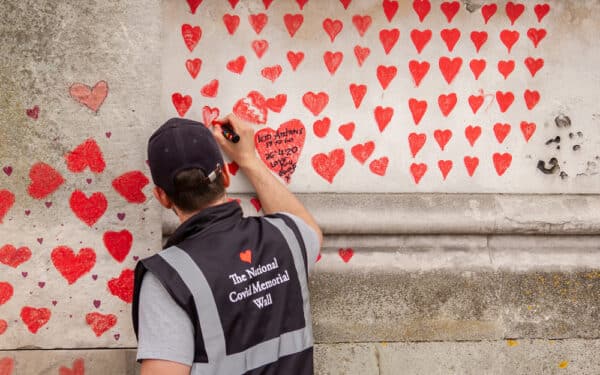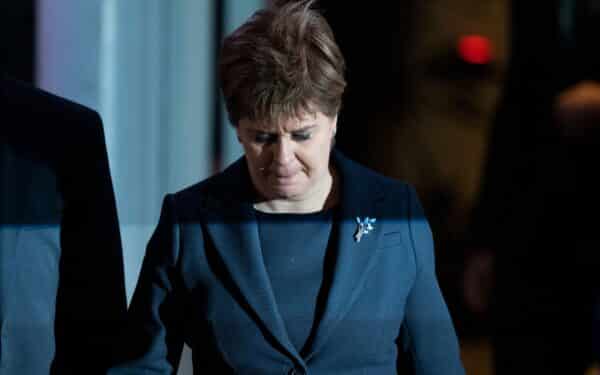Dear Prime Minister,
I’m not in the habit of sending letters to you, or to other politicians come to think of it. Presumably you get an excess of uncalled for advice landing on your desk. I’m sending this as a short, open letter – relatively brief enough that it can be printed off to your preference on several sheets of A4 – simply in the hope that it stands out and to explain why you should act.
For everyone’s sake, you must install a professional communications operation in Number 10, immediately.
The scale of the Coronavirus crisis and public concern means that an anxious population needs regular and accurate information, communicated by the government in a properly organised manner.
This is not happening. On Saturday, ITV’s Robert Peston published a report on the next phase of draconian measures the government is said to be introducing. It was based on “off the record” government briefings and a considerable amplification of comments made by scientists last week. The content was confirmed on Sunday, or was it? Many families will have spent the day confused about whether or not the over 70s are to be told to stay at home, avoiding contact with anyone, grandchildren included, for up to four months.
On Sunday the Scottish government stated publicly that it is not following the UK government’s four month isolation plan for the elderly – yet.
Simultaneously, the confusing row about the concept of “herd immunity” continues to rumble on, with medics and ministers making contradictory statements.
As someone expressing concern I’m not in the “usual suspects” category. Last week, in my column in The Times, I said that the government has – so far – handled this impossible situation well. The televised briefing in Number 10 last week was impressive; your personal messaging has been clear and straightforward; and you are following scientific advice.
Is the British strategy correct? While I hope it is, like most people I have no idea. But there is a plan, based on the 2013 pandemic plan devised by scientists and medics.
Unfortunately, the communications set-up you have in Number 10 is amateur hour and it is fast becoming a dangerous farce that creates confusion. Although there are some decent professionals in there, the overall structure and chain of command is worse than a mess.
It turns out that the Number 10 approach to media relations – a war with certain outlets, selective briefings, off the record flying of kites, and assorted weirdness – is wholly unsuited to a national and international crisis in which you need to build trust with the media and the public.
During this weekend’s confusion there was an outbreak of justified calls on social media for a daily, televised press conference to update the public. This will now happen, it seems. In the Falklands War in 1982 there there were regular public updates by a civil servant.
The transparency of a daily press conference to inform the public is only one element of what is required, however.
Somehow, incredibly, you’ve ended up in a situation in which you don’t have a proper communications operation and media plan in Number 10.
This is not the time to dwell, for too long, on how this developed. On becoming Tory leader you needed to put together a team at speed, and understandably you looked to familiar faces from Vote Leave.
Unfortunately, your main aide, Dominic Cummings seems to have extracted a promise last year that he would be “in charge of everything” – that is the Number 10 political machine, the network of advisors, and in effect communication too. The contempt of Cummings for the media and for journalists is off the charts. Interestingly, the two figures who were his main promoters (Michael Gove and Boris Johnson) are both journalists.
Incidentally, Cummings should have been told that anyone who wants to “be in charge of everything” in the British system must stand for parliament, win a seat, become leader of their party and then try to earn the post of Prime Minister.
Friend of Cummings and erstwhile communications assistant – who carries the title Director of Communications – is Lee Cain. All the power resides with Cummings and the media strategy is devised by Cummings.
James Slack, your official spokesman, is widely respected and trusted by journalists, but again he is not in charge. Dom is. And on the days when James is not around, say in the lead up to a weekend, reporters notice that weird things happen and odd stories get briefed.
This is not – repeat not – a complaint rooted in pathetic angst about certain reporters getting access and others not. Personally, I could not give a stuff about all that. This is simply an emergency in which the normal fixations – media dog eat dog – are irrelevant. What matters is the calm and transparent communication of a reliable flow of accurate information that helps the public.
To achieve this, what is needed is the immediate appointment of a senior communications expert – either an existing senior civil servant or someone from the private sector – who can oversee the formation of a proper plan to manage the comms working across government direct to you and the Cabinet Secretary. They may need to become a public spokesman on camera themselves, or appoint someone to handle this.
After a weekend of confusion about the government’s strategy, I suspect the leaders of the devolved administrations and elected mayors such as Andy Burnham will want an assurance that you will sort this out and give them someone they and their teams can work with on coordinating the national messaging. It needs to be “one singer, one song” – a coherent message communicated across the country.
Luckily, Britain has many skilled communications professionals adept at handling crises. It’s a national specialism, and a London specialism in particular because of the City. Several of the biggest hitters in comms would be willing to answer the call to help their country, I’m sure. Call them up.
You need to fix this immediately. As a student of Churchill you’ve read Alanbrooke’s wartime diaries, and you will have noted the way in which the then Prime Minister could be ruthless about changing personnel at key points when changed circumstances demanded improvement and an injection of genuine expertise. That’s how he got Alanbrooke in the first place, and thank goodness he did.
This is not a war, but it is an emergency of a kind unseen in a century. Effective communications will count – a lot – in this deepening crisis.
What you have in place now is not going be enough.
Yours sincerely,
Iain Martin,
Editor, Reaction.





